Bay Area Dungeness Crab Season Off to a Strong Start After November 1 Opener
Subscribe to The Fish Sniffer
Stay up to date with the latest fishing reports and expert tips.
Stay up to date with the latest fishing reports and expert tips.
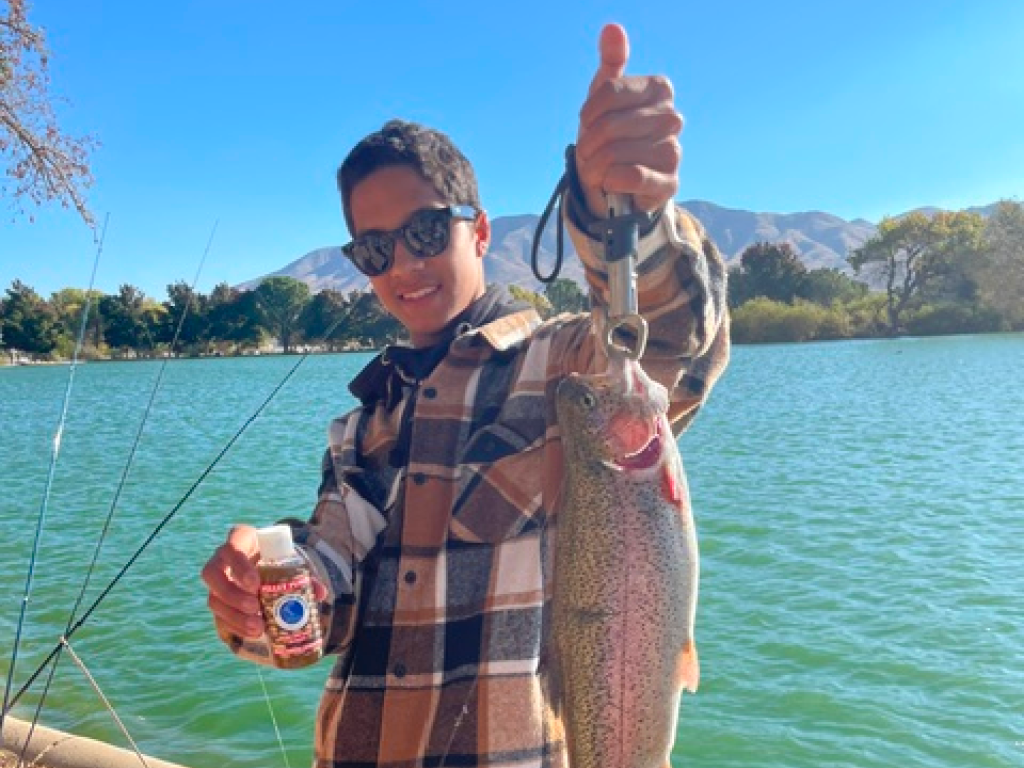
On November 13, 2025, during the Hesperia opener at Hesperia Lake Park, the trout bite began slowly, with just one fish caught on PowerBait before 10 PM. As the evening progressed, the bite significan...
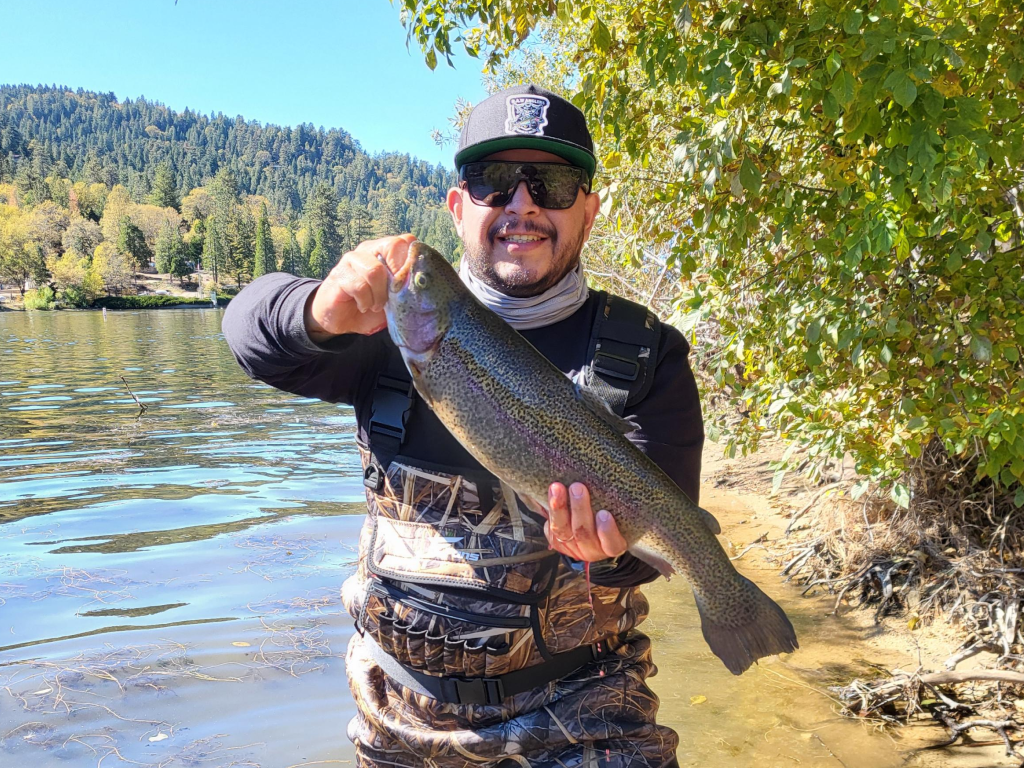
Luis Gonzalez started November strong at Lake Gregory and landed a thick 4.10-pound rainbow trout on the 1st right next ...
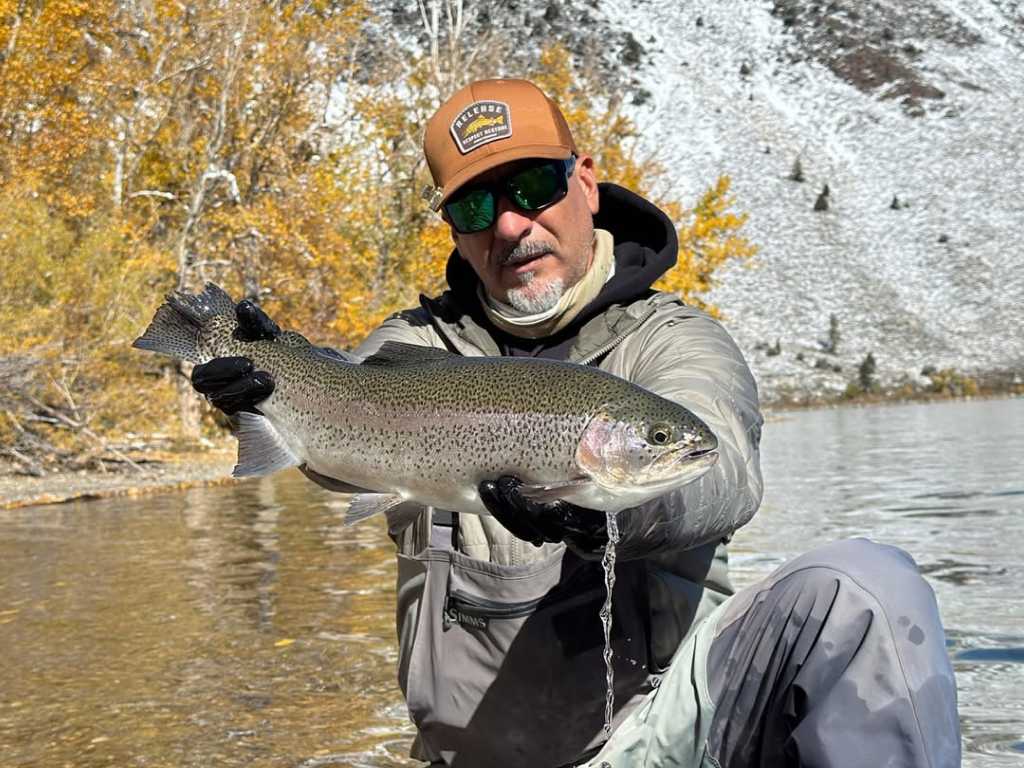
Anglers hitting Convict Lake in the Eastern Sierra report a strong trout bite after recent storms cleared. Trout have tu...
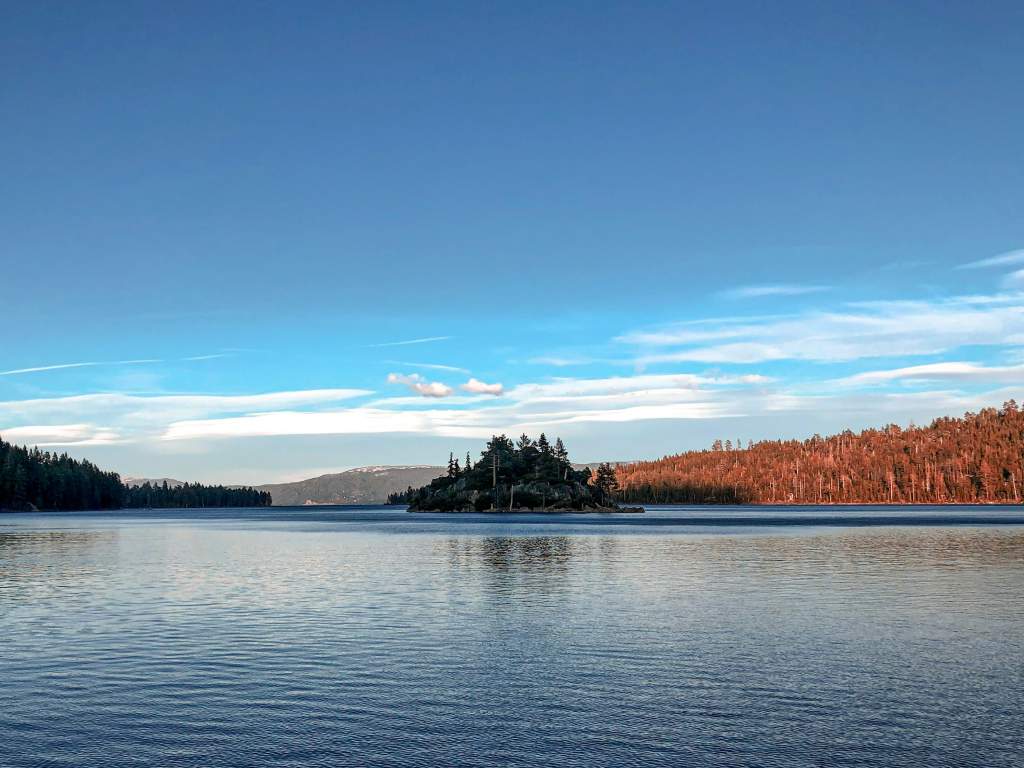
EBMUD partially reopens launches in 2026 after year-long closure to stop invasive golden mussel. Plan approved November ...
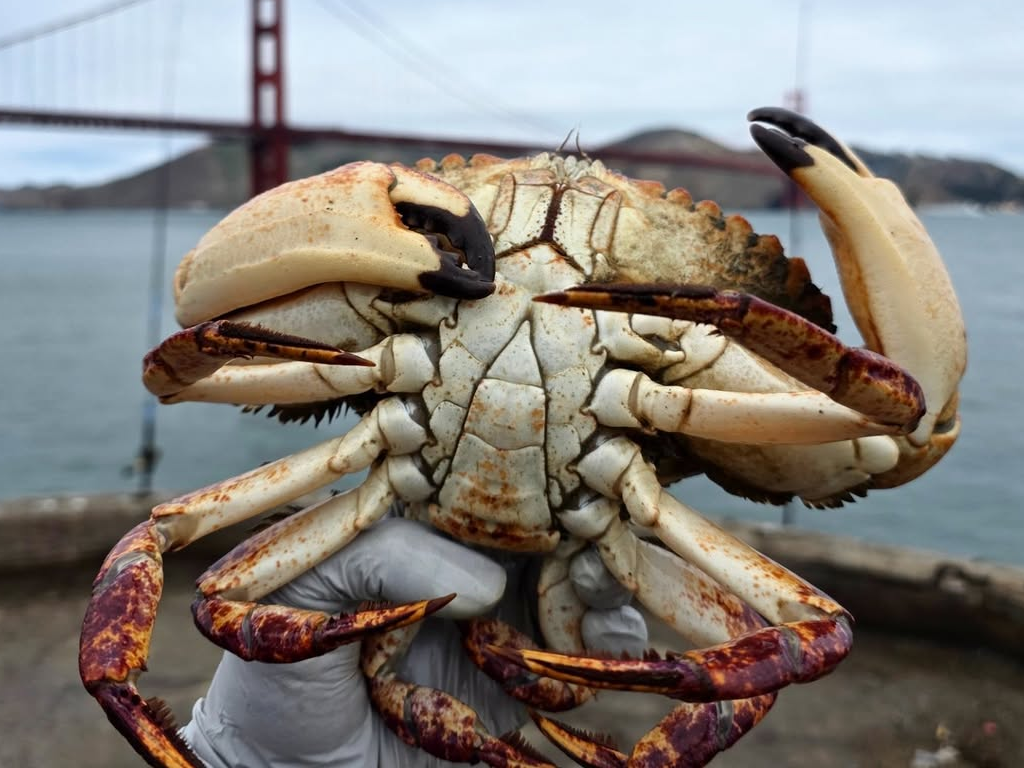
The 2025-2026 recreational season opened November 1 along sections of the central California coast, and we have seen excellent shore-based action across the Bay Area, Pacifica, and Half Moon Bay. Crab...
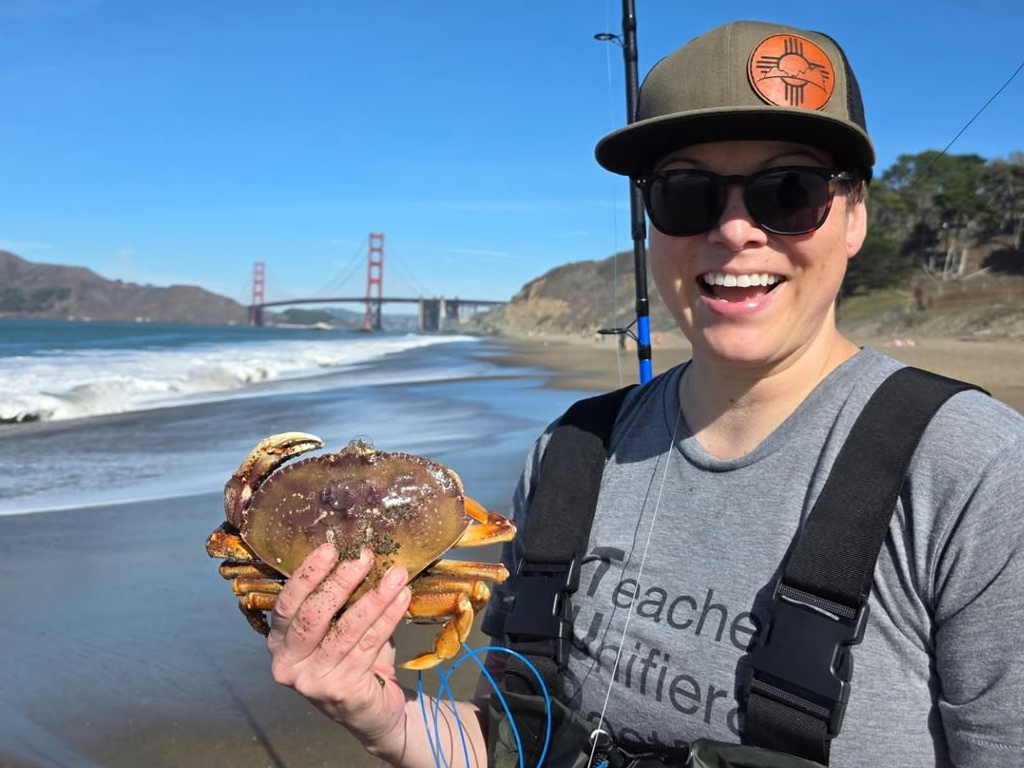
Pacific Coast, CA – Lawrence Ngai of Durasnare kicked off the beach crab snaring season with a standout group session. H...
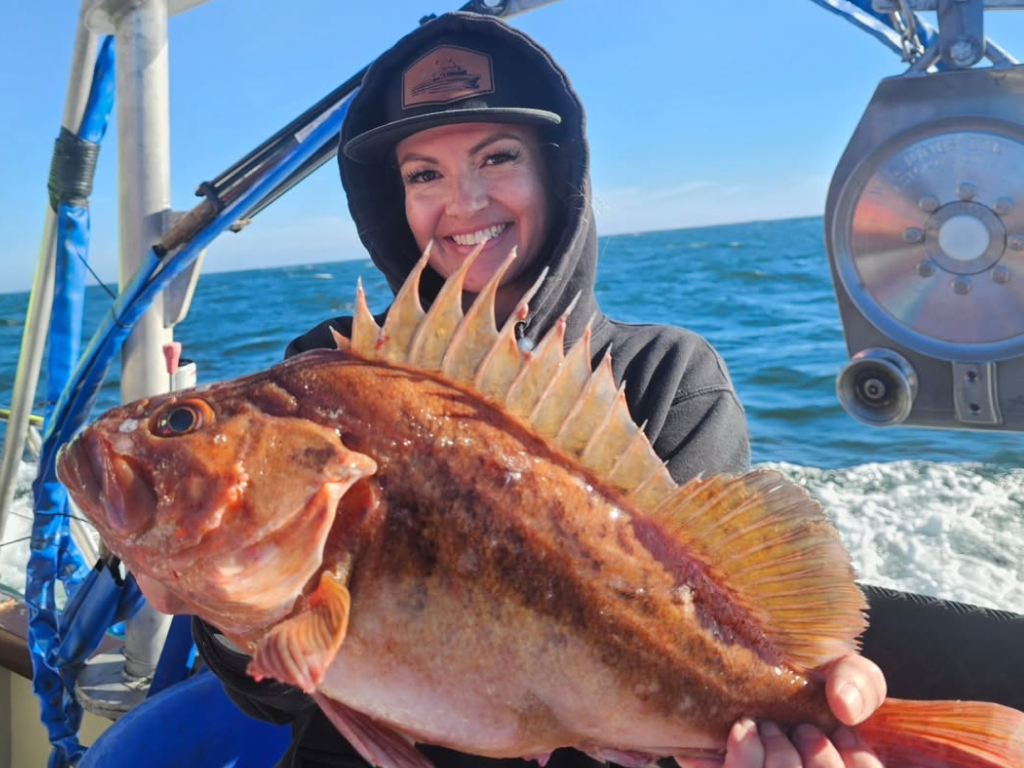
San Francisco, CA – Tanya fished a crab/rockfish combo trip from Fisherman’s Wharf. The boat limited on rockfish in one ...

The 3rd Annual Crab Snare Fishing Derby for the Cause has started, and everyone along the Northern California coast is t...

Check out the new issue of The Fish Sniffer Magazine for October 17, 2025.
In this issue of The Fish Sniffer, we celebrate the arrival of Fall. Much cooler temperatures and even some rainfall have occurred, setting the stage for excellent fishing in Northern California. Trout, salmon, bass, panfish, stripers, catfish, and all other species are on the bite to fatten up for the lean winter season.
Check out the articles in this issue, including a full report on the opening week at Pyramid Lake, the Fall Rio Vista Striper Derby, and the 25th Annual Shasta Lake Trout Derby. Learn how to catch more fish and enjoy the great outdoors in Northern California this fall season.
The golden mussel problem continues to impact boaters statewide, causing major boat launch closures and strict new inspection and quarantine rules at several lakes. These rules are beginning to change, and some lakes—like Oroville and Bullards Bar—now allow same-day launches following an inspection. Always check the regulations at any lake before heading out.
All you need to know about fresh and saltwater fishing in Northern California is in the new issue of The Fish Sniffer Magazine!

The 2025-2026 recreational season opened November 1 along sections of the central California coast, and we have seen excellent shore-based action across the Bay Area, Pacifica, and Half Moon Bay. Crab...

Anglers hitting Convict Lake in the Eastern Sierra report a strong trout bite after recent storms cleared. Trout have tu...

EBMUD partially reopens launches in 2026 after year-long closure to stop invasive golden mussel. Plan approved November ...
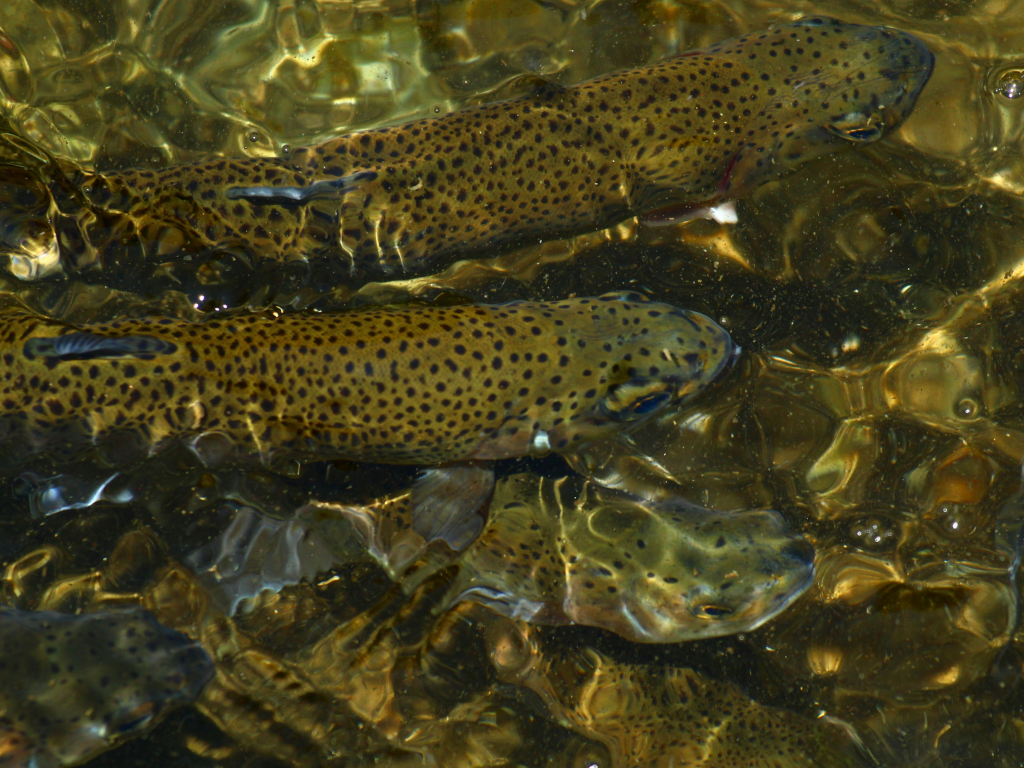
SACRAMENTO - For the first time in three years, anglers this fall had the chance again to catch big, bright fall-run Chi...
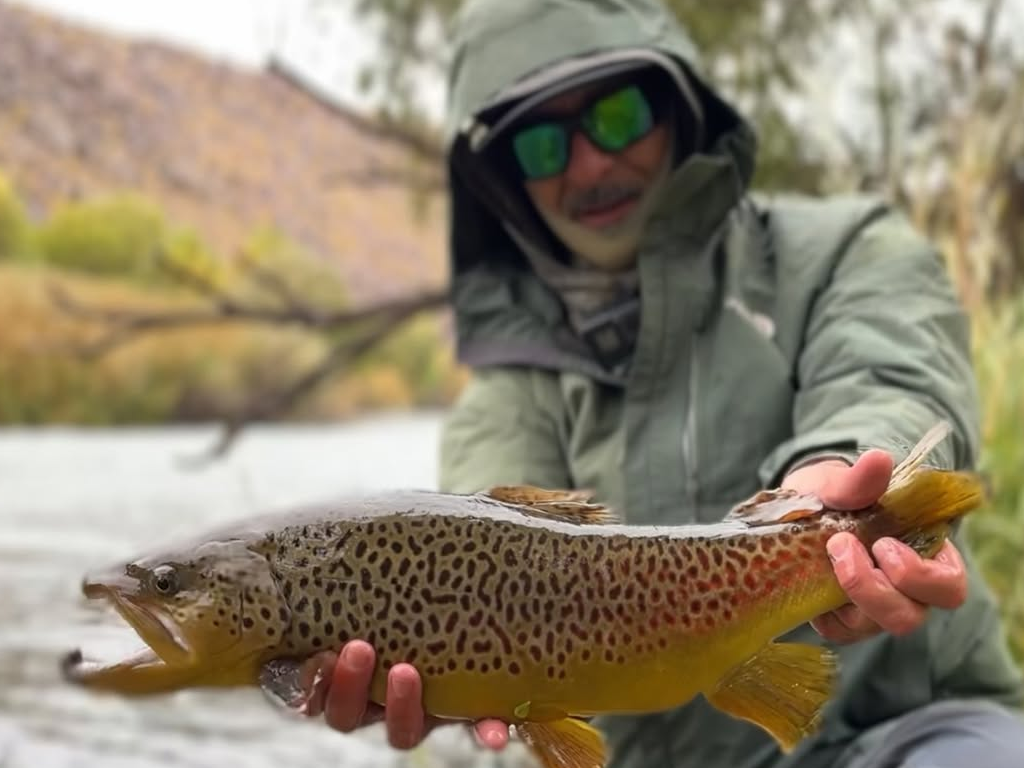
Mike Cooper of MADE Baits caught this brown in the Eastern Sierras. He hit the river reservoir edge during the tail end of a fall storm before check in and found a heavy pumpkin colored buck brown. It...
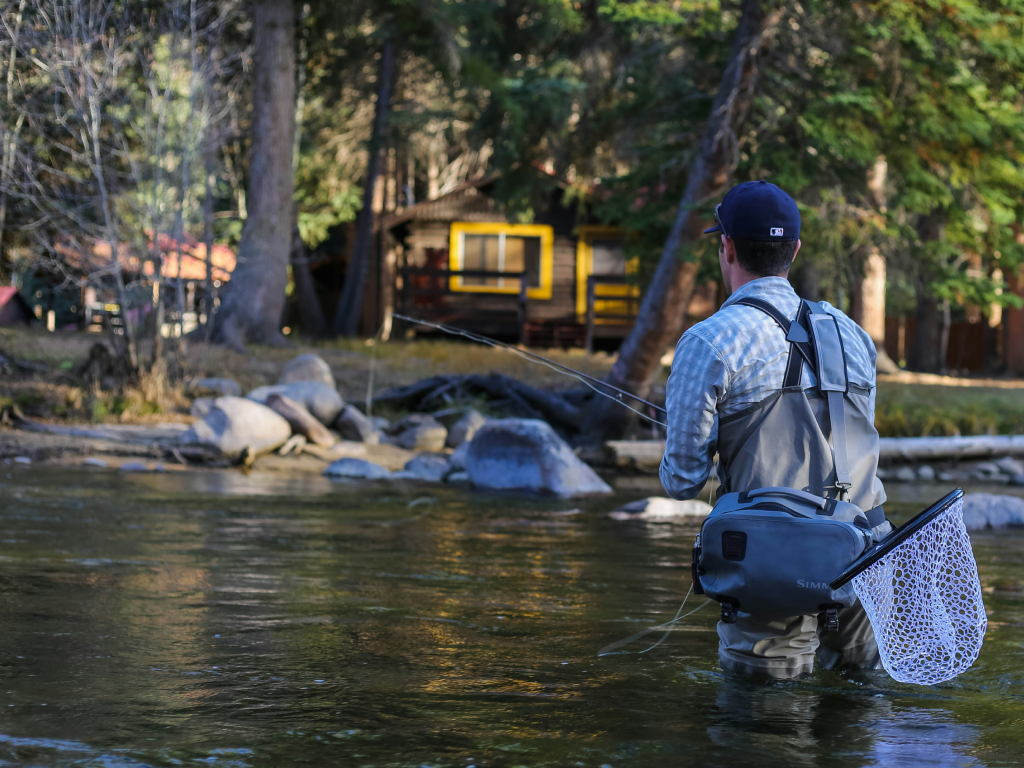
BURSON – Shore anglers and rental boaters are catching big numbers of black bass, particularly smallmouths, at Pardee La...
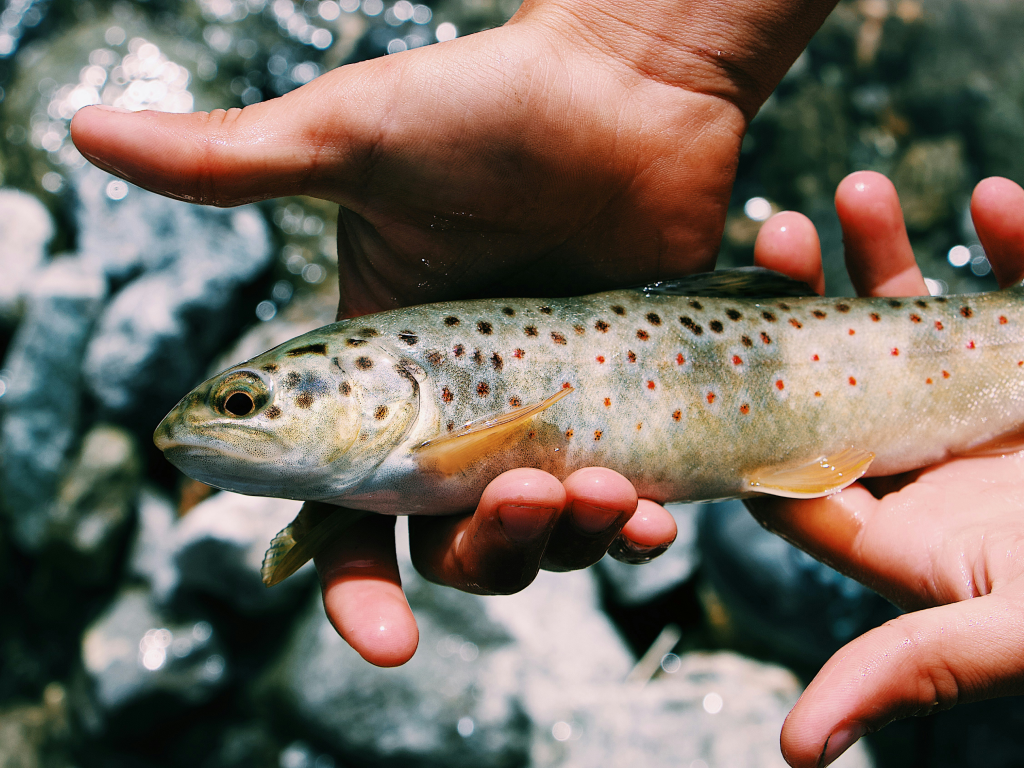
ANGELS CAMP – While kokanee salmon fishing has petered out as the fish go upriver to spawn, fishing for rainbow trout is...
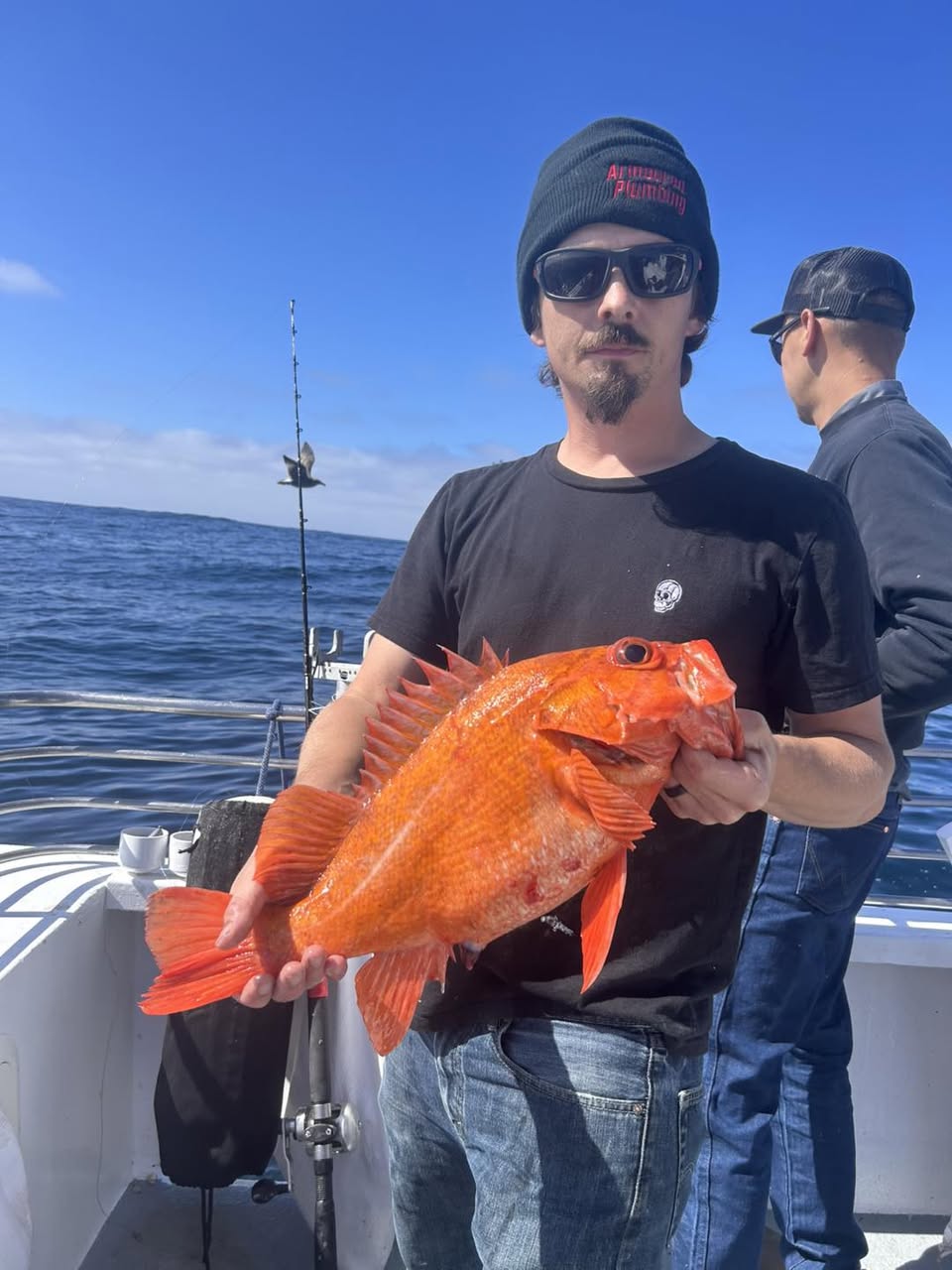
SANTA CRUZ – While most anglers are focusing on rockfish and lingcod now that all depths are open, a few bluefin tuna ar...
Jack Naves trolled the West Delta in his North River boat powered by a Yamaha outboard motor October 10-12. He trolled shallow running Magnum Rat-LTrap lures in the 3/4 ounce size and Yo-Zuri Crystal Minnow 5-1/4” deep divers to attract striped bass. The lures were run behind Ugly Stick Lite rods with Okuma Cold Water Low Profile Line Counter reels spooled with 25 lb. test Fins 40G braided fishing line.
Paul Kneeland fished Pyramid Lake with John Brassfield of Trucksmart stores and Brian Garcia of Alta in the Fish Sniffer Rogue Jet 21 Coastal. They caught Lahontan cutthroat trout to 16 1/2 pounds, using an Okuma SST 8’6” light Steelhead Rod with an Okuma Convector line counter reel loaded with 10 lb. test P Line. They trolled 4 inch watermelon Silver Horde and 4 inch Doctor Spoons in “Triple Threat” color and also several colors of Lyman and Silver Horde plugs behind Vance’s Cannonball flashers, trolling off Canon Downriggers at 60 to 90 feet deep and 2.3 mph.
Dan Bacher fished for largemouth bass at Folsom Lake. He used a Berkley Ugly Stik GX2 6’6” medium action spinning rod, teamed up with a Shakespeare GX235 spinning reel filled with 8 lb. test P-Line CX Premium Fluorocarbon Coated Line. He fished with wacky-rigged 5 inch Yamamoto Senkos in watermelon and green pumpkin/black flake on Gamakatsu Finesse Wide Gap Hooks in #1 and 1/0.
Trollers are catching big numbers of king salmon, kokanee salmon, rainbow trout and black bass. The fish are hitting T-pex lures and other offerings at anywhere from 40 to 100 feet deep.
Anglers continue to catch limits of stripers, along with some halibut and an occasional white seabass, while drifting live anchovies.
Fishing has been epic for trollers since opening day on October 1. Anglers are hooking some huge fish, including some in the 13 to 20 lb. range, while using an array of spoons and plugs.
Limits of rockfish, along with some lingcod, are the reward for anglers looking for great action. You should use jigs, swimbaits, bars and baited shrimp flies for the bottomfish.
King salmon are on the bite for experienced anglers. Fishermen can target salmon through October 31 in the stretch of river from the SMUD power line crossing at the southwest boundary of Ancil Hoffman Park downstream to the Jibboom Street Bridge.
Striped bass fishing continues to be excellent on the lower river out of Cuttings Wharf. You should troll with ¾ and 1 ounce Rat-L-Trap chrome and chartreuse lures.
The salmon season in the section of the Feather River from 200 yards above the Live Oak boat ramp to Highway 99 bridge remains open through October 31. The bag limit is one Chinook salmon.
Mackinaw are holding 50–150 feet deep off the west shore, Cal Neva Hole, and South Lake. Large plugs and jigged minnows are producing solid fish.
Rockfish and lingcod action has been hot. Anglers are nailing limits of rockfish and lingcod while fishing live bait, jigs, swimbaits and other offerings.
Anglers trolling with Yo-Zuri lures, tipped with plastic worm tails, are bagging stripers off the West Bank. Drifting live minnows and fishing with cut bait will improve as the water temperatures cool.
Expect the shore fishing for trout to improve as the water temperature cools down and the fish go on the bite. Use inflated nightcrawlers, PowerBait, Kastmasters and an array of lures to entice the rainbows.
Trout fishing for kayakers and bank anglers should perk up now that cool weather has arrived. Either troll with spinners and spoons or use nightcrawlers and PowerBait from the bank.
The lake should turn over soon with the arrival of cooler weather. Bank anglers and boaters can both find success with cooling water temperature.
Trout plants are expected to begin soon with the onset of colder weather. Troll with Trix Minnows and spinners behind dodgers or bait fish with nightcrawlers and PowerBait.
Expect the surfperch fishing to improve in the coming months as the fish move into the beaches to spawn. Cast out plastic grubs, live shrimp and bloodworms for the fish.
Catch-and-release sturgeon fishing should perk up with the runoff from the early winter storm. Fish salmon roe, lamprey eel and live ghost and grass shrimp for the diamondbacks.
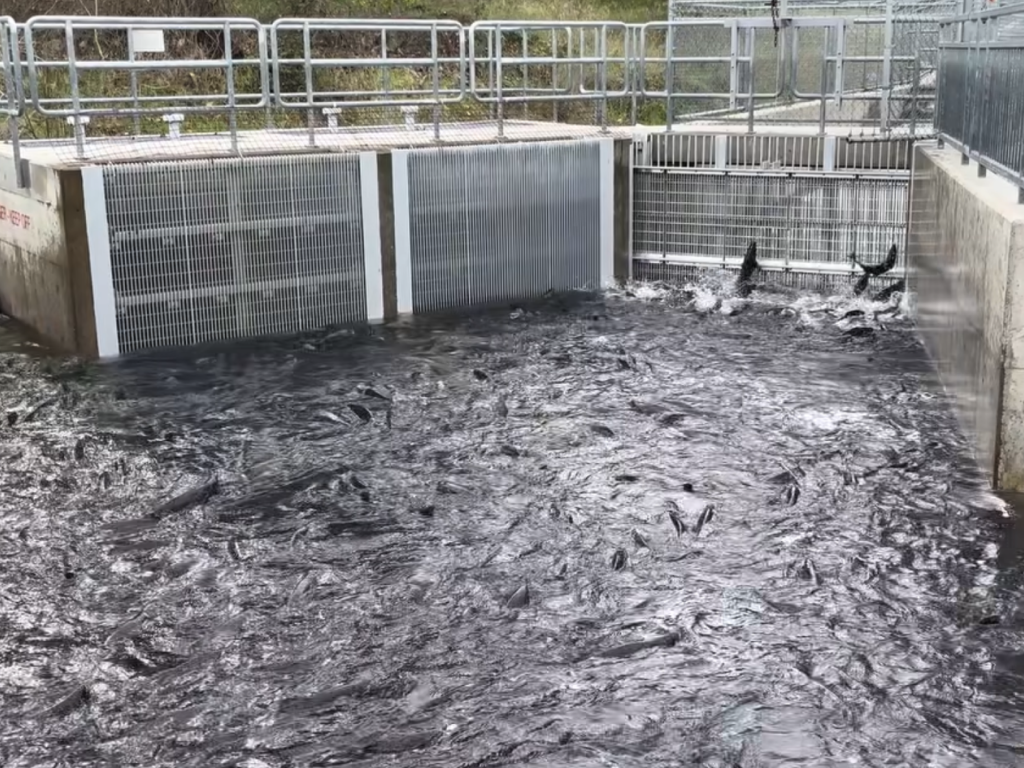
American River, CA – Following the opening of the Nimbus Hatchery fish ladder last week, California Department of Fish and Wildlife staff started spawning fall-run Chinook salmon on Monday, November 1...

Delta Tunnel opponents slam Gov. Newsom's revised budget plan to fast-track project SACRAMENTO - Sacramento — Governor...
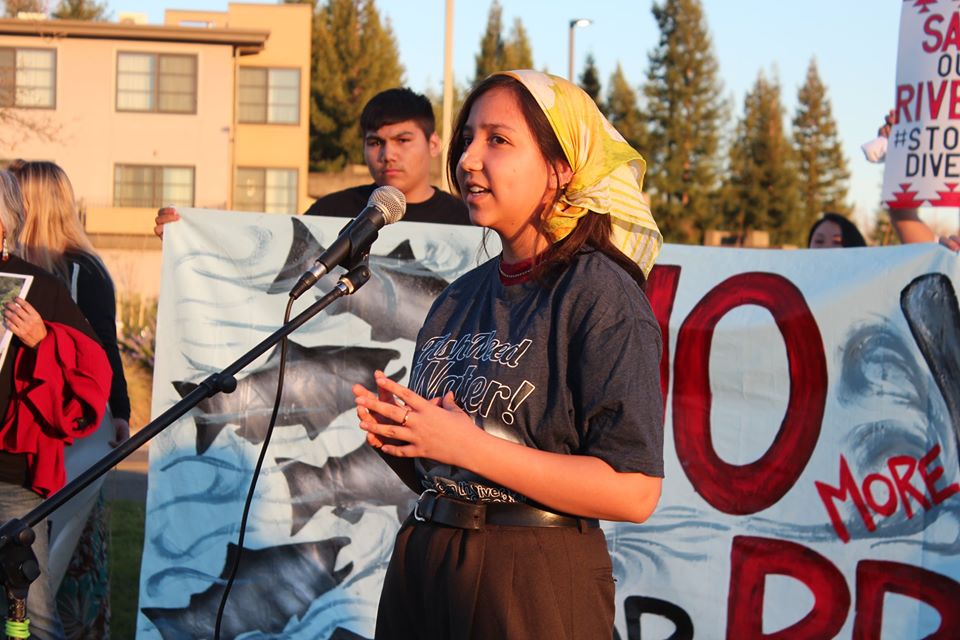
For many years, federal, state, and corporate proponents of building more dams in California have touted cold water rive...

REDDING, Calif. - The Bureau of Reclamation today announced a virtual open house website for the controversial Shasta Da...

On November 13, 2025, during the Hesperia opener at Hesperia Lake Park, the trout bite began slowly, with just one fish caught on PowerBait before 10 PM. As the evening progressed, the bite significan...

Luis Gonzalez started November strong at Lake Gregory and landed a thick 4.10-pound rainbow trout on the 1st right next ...
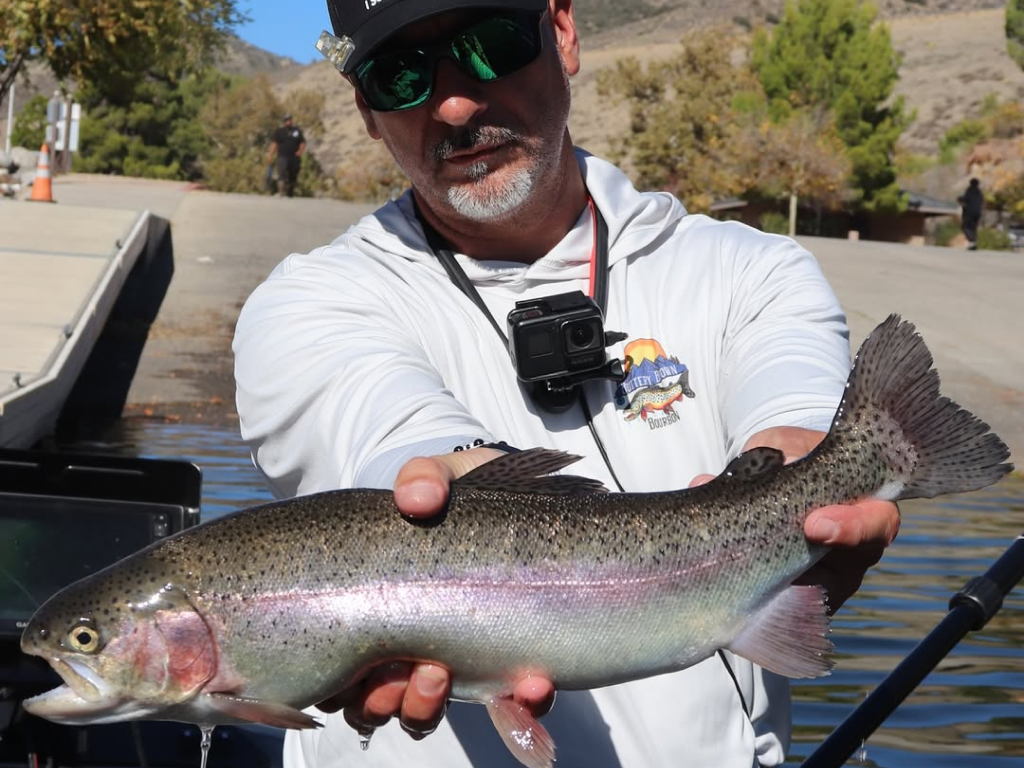
Pyramid Lake, Los Angeles County, CA – While Pyramid Lake fishing in Nevada continues to produce, the other Pyramid Lake...
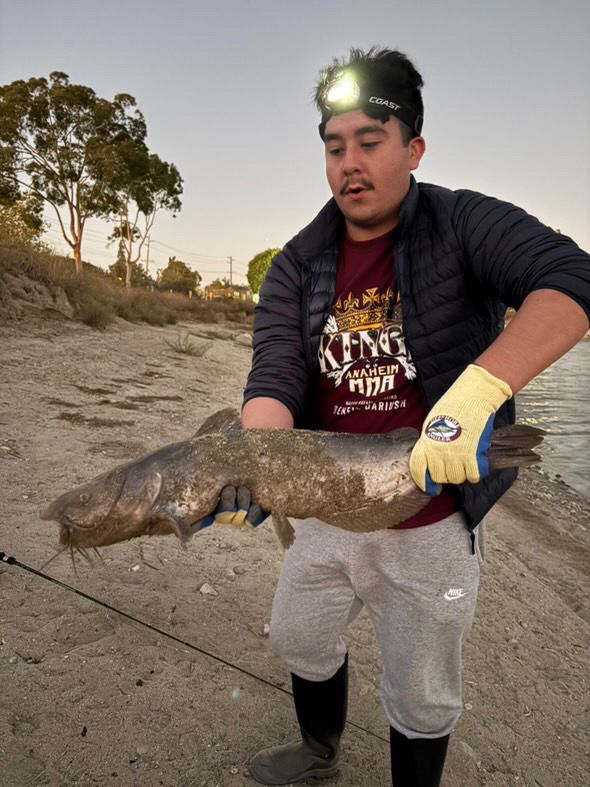
On Wednesday, October 8, I headed back to Orange County’s famous Santa Ana River Lakes, arriving around five o’clock in ...